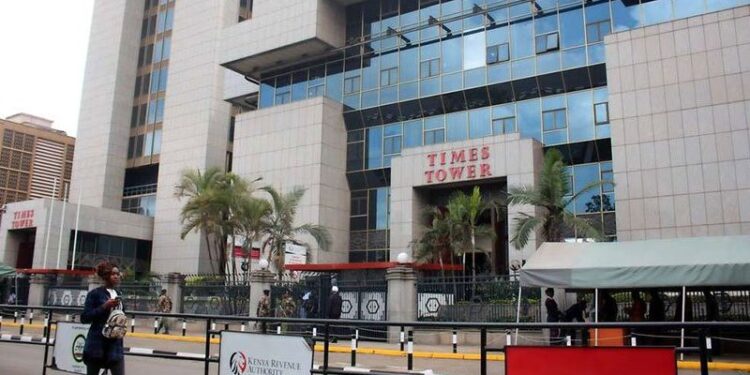As of 1st July 2023, new Pay As You Earn (PAYE) tax rates came into effect in Kenya. PAYE is a mandatory tax imposed by the Kenya Revenue Authority (KRA) on all employees’ income, and it is deducted directly from salaries or wages. Employers are responsible for calculating and deducting this tax and remitting it to KRA by the 9th day of the following month. In this article, we delve into the updated PAYE tax rates under the Finance Act 2023 and explain how they affect employees and employers.
What is PAYE?
PAYE is an income tax that applies to employment income, which includes salaries, wages, bonuses, and benefits such as housing or car allowances. The tax ensures that employees contribute to the national revenue based on their earnings. In Kenya, PAYE is applicable to anyone earning a monthly income of Ksh 24,000 or more.
For employees who earn less than Ksh 24,000 per month, no PAYE is deducted, but the employer must still file a NIL return with KRA to indicate that no tax is payable.
Submitting PAYE Returns
Employers are required to submit PAYE returns online through the iTax platform. KRA provides a user-friendly system for remitting these taxes. Even if an employer has no PAYE to declare, a NIL return must be submitted. Failure to do so can attract penalties or fines from the KRA.
PAYE Tax Rates
The PAYE tax rates vary depending on the employee’s income, and they are structured in tax bands that apply different percentages of taxation. The new rates under the Finance Act 2023 are as follows:
| Monthly Pay Bands (Ksh) | Annual Pay Bands (Ksh) | Rate of Tax (%) |
|---|---|---|
| On the first Ksh. 24,000 | On the first Ksh. 288,000 | 10% |
| On the next Ksh. 8,333 | On the next Ksh. 100,000 | 25% |
| On the next Ksh. 467,667 | On the next Ksh. 5,612,000 | 30% |
| On the next Ksh. 300,000 | On the next Ksh. 3,600,000 | 32.5% |
| On all income above Ksh. 800,000 | On all income above Ksh. 9,600,000 | 35% |
This graduated tax structure ensures that individuals with higher incomes contribute more to the national tax pool.
How PAYE Tax Bands Work
- Income up to Ksh 24,000 is taxed at a rate of 10%. This means if you earn Ksh 24,000 or less, 10% of your income goes to KRA.
- The next Ksh 8,333 (for those earning above Ksh 24,000) is taxed at 25%. For example, if you earn Ksh 32,333, the first Ksh 24,000 will be taxed at 10%, and the remaining Ksh 8,333 will be taxed at 25%.
- Income exceeding Ksh 32,333 up to Ksh 800,000 monthly will be taxed at 30%.
- Higher income brackets will experience higher taxation, with the next Ksh 300,000 taxed at 32.5%, and any amount above Ksh 800,000 per month taxed at 35%.
This progression ensures a fair distribution of the tax burden, with higher earners contributing proportionately more.
Personal Tax Relief
All employees who are subject to PAYE are entitled to a monthly personal tax relief of Ksh 2,400, translating to Ksh 28,800 annually. This relief is deducted from the total tax owed, reducing the overall tax burden on individual taxpayers.
Filing PAYE Returns
Employers are required to deduct PAYE from their employees’ monthly income and remit it to KRA by the 9th of the following month. Failure to remit the taxes on time can attract penalties and interest. With the introduction of the iTax system, the filing process has become more efficient, and both employers and employees can check their PAYE records and tax obligations through the platform.
For those not familiar with the filing process, KRA offers support through its call center and email services.
Why the New Tax Rates?
The Finance Act 2023 introduced these new tax bands to ensure that the tax structure remains equitable and aligned with Kenya’s economic goals. By increasing the tax rates for higher earners, the government aims to raise revenue for critical development projects and public services such as healthcare, education, and infrastructure development.
Conclusion
The updated PAYE tax rates in Kenya reflect the government’s effort to create a fair tax system that aligns with individuals’ income levels. With rates ranging from 10% to 35%, employees contribute progressively based on their earnings. It is crucial for both employers and employees to stay informed about these tax obligations to avoid penalties and ensure compliance.
If you have any further questions or need assistance with PAYE filing, you can contact the Kenya Revenue Authority using the details provided below.
Kenya Revenue Authority Contacts
- Phone: +254 20 281 0000
- Email: callcentre@kra.go.ke
- Address: Times Tower Building, Haile Selassie Avenue, Nairobi
Understanding these tax rates can help you plan your finances better and ensure compliance with KRA regulations. Always stay updated with changes in tax policies to avoid unexpected liabilities.





